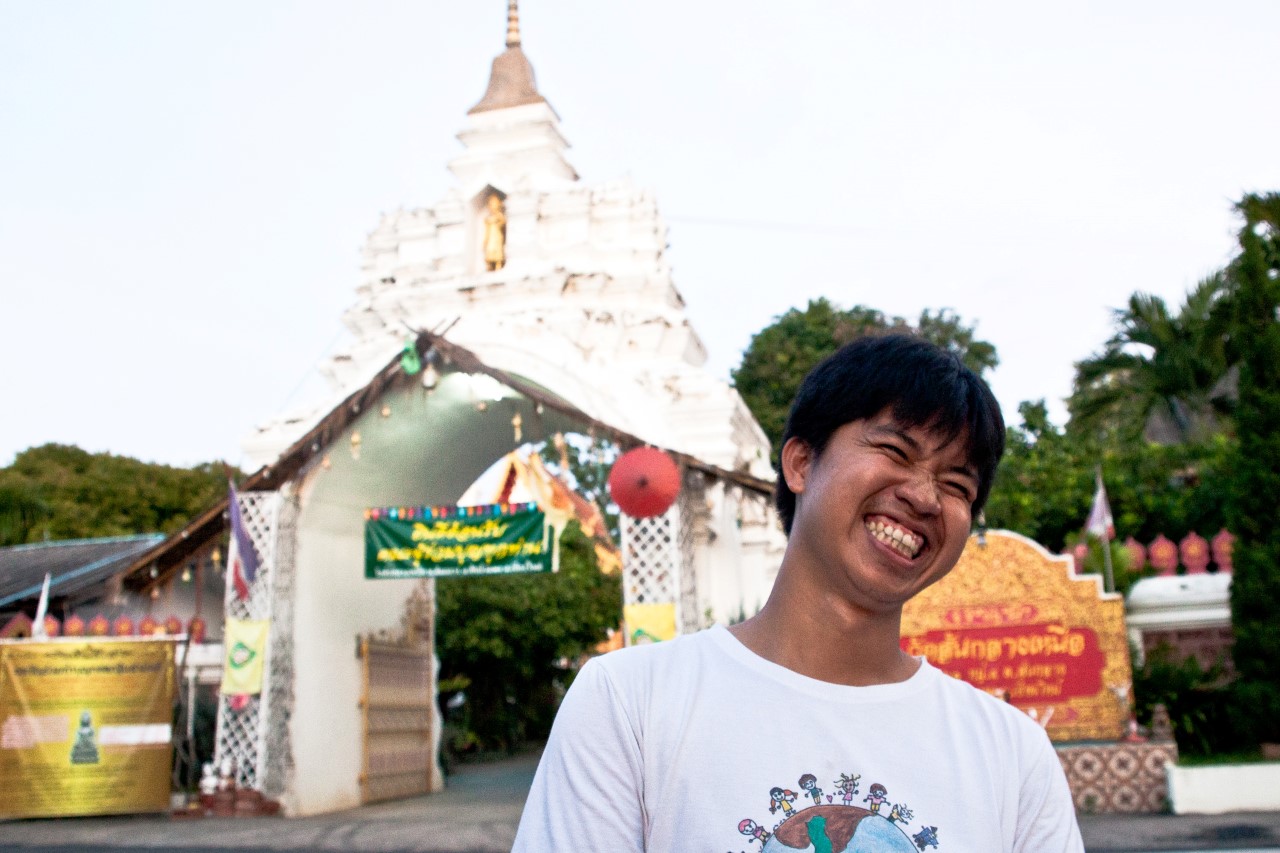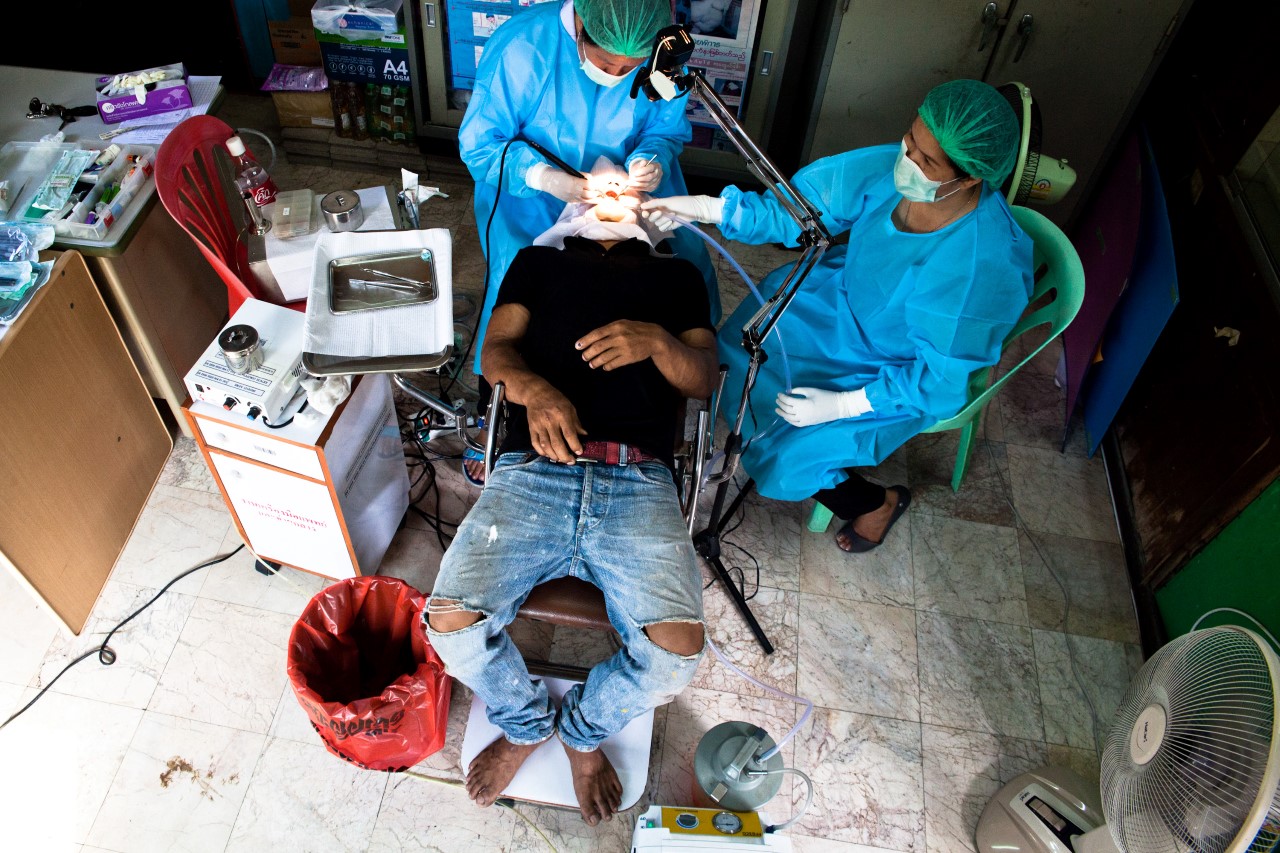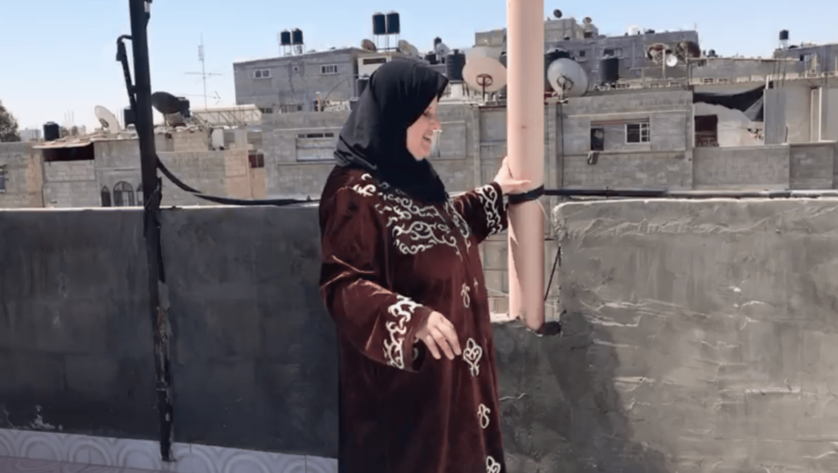Fortunately, it did bring something good — her son Tee Nayord. But the confused young mother knew nothing about the importance of civil registration for her son. She had crossed the border illegally and was too afraid to go to the hospital to register her son’s birth.
Today, Tee Nayord is 23, one of many stateless ethnic Shan migrants from Myanmar living in Thailand, and works on behalf of other migrants at a new resource centre for migrants in Chiang Mai, in north-western Thailand — something that made his mother worry that he would be exposed to legal problems.
Before joining the centre, he worked as a labourer carrying bags of rice for a few Thai baht every day — just enough to make ends meet. “That work was purely physical and required no thinking. I simply followed my boss’s orders,” recalls Tee Nayord.
“Working on this project has prompted me to think about larger topics that impact myself, my family and my community. This has been a big positive change for me.”
Of the estimated 3 to 4 million Myanmar migrants in Thailand, some 300,000 live in the greater Chiang Mai area. The majority are ethnic Shan who came to Thailand in search of a safe place to live, work opportunities and better prospects for themselves and their families.
The centre helps Shan migrants in the villages on the outskirts of Chiang Mai understand how to fit into Thai society, learn the language and understand legal options and obligations. Chiang Mai, the ‘Rose of the North’, is not only a hotspot for tourists but also a thriving centre for construction, agriculture, garment and hospitality industries seeking cheap labour. Unfortunately, in their pursuit of profits, local recruiters do not always afford migrant workers the benefits, rights and protections enshrined in Thai labour laws.
Shan migrants frequently face a high level of prejudice, isolation and discrimination on the basis of their ethnicity and legal status in Thailand. Despite her young age, 19-year-old Nong Harn has already experienced this first-hand: often her background limits her access to labour market. “Employers should judge you by your skills and not the nationality on your identity card,” she says.
As in many other countries, migrants in Thailand are often left to cope with their problems alone. In spite of a government complaints mechanism for migrant workers recently established in Chiang Mai, Shan people, especially those lacking legal papers and Thai language skills, still opt for help from civil society and migrant communities.
Inspiring leadership
These are all reasons the Life Skills Development Foundation helps to empower migrants with training, education and other guidance. “Migrant leaders with proper skills and knowledge can help Shan communities understand their rights and entitlements, and support them in difficult situations,” explains Kreangkrai Chaimuangdee, executive director of the Life Skills Development Foundation.
“They are the best resources for developing services for migrants because being part of the community gives them the best knowledge about migrants’ real needs and concerns.
“Originally this project was developed for migrants. But today it has evolved into a project owned and run by the migrants themselves.”
Supported by the IFRC, the Life Skills Development Foundation has established five resource centres. Every day these centres open their doors to offer migrants training in Thai, English and Shan languages as well as workshops to build self-esteem and motivation, and leadership, organizational, computer and planning skills. The beauty of this programme is that the training courses are designed and delivered by migrants for migrants.
Pattama, 22, works at a launderette from 08:00 till 18:00 for a salary of 7,000 baht (about US$ 200) a month. She is also one of the migrants attending the free Thai lessons. She came to Thailand six years ago with her sister, while their mother stayed behind in Shan state.
 Red Cross Red Crescent magazine
Red Cross Red Crescent magazine 







 Tech & Innovation
Tech & Innovation Climate Change
Climate Change Volunteers
Volunteers Health
Health Migration
Migration